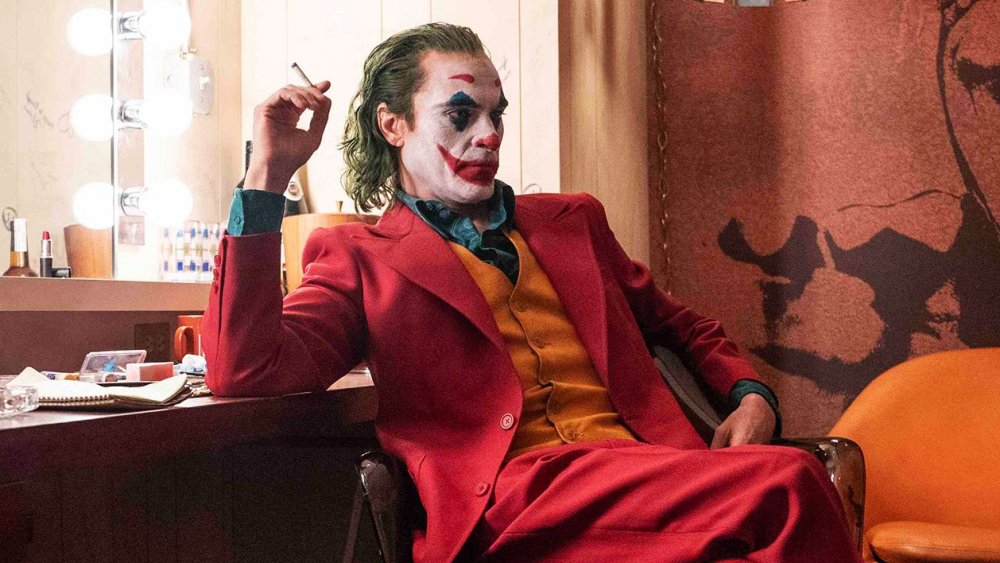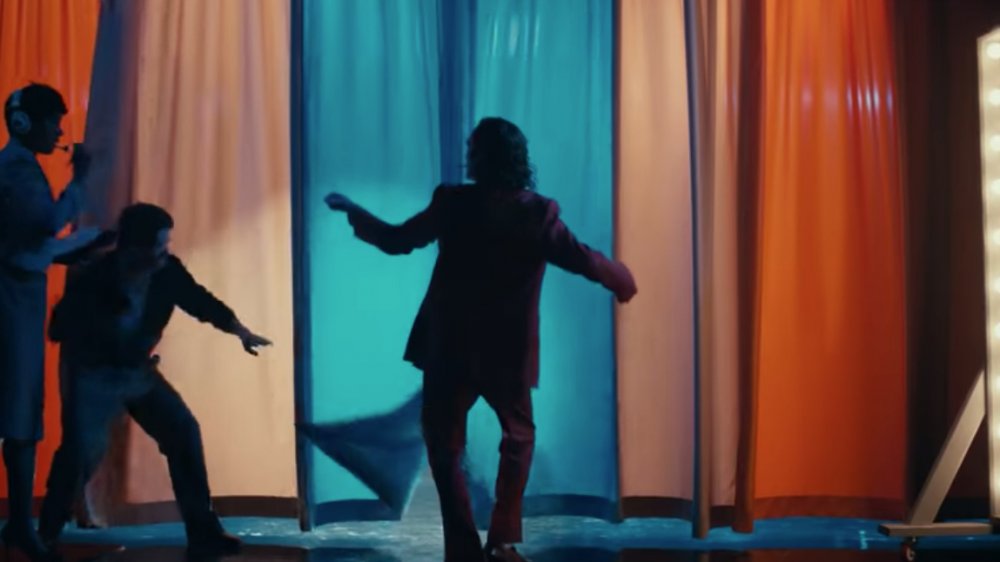Joker's Talk Show Scene Could Have Gone Much Differently
Contains spoilers for Joker
Whether you loved the movie or not, Todd Phillips' Joker is officially having a moment, and people can't seem to stop talking about the unlikeliest of comic book movies.
The film's star Joaquin Phoenix, who plays the failed comedian Arthur Fleck who ultimately snaps and becomes the Joker, and Phillips himself are amongst those who can't seem to keep quiet on the topic of Joker. Over the past month alone, the duo have been dropping a series of intriguing little bread crumbs about the film during press junkets and post-release interviews. The latest tidbit comes via a recent interview with Collider, during which Phillips and Phoenix discussed the alternate outcome for the film's talk show sequence.
We're about to spoil one of Joker's big twists, so if you haven't seen the film, look away now.
In Joker, Arthur Fleck makes an appearance on his idol Murray Franklin's (Robert DeNiro) late-night talk show. It's a moment that found Arthur in full Joker regalia for the first time – packing a .38 in his belt and wallowing over the suicidal malice in his heart. It's a moment that eventually sees a worked-up Arthur murder Murray on live television.
Viewers knew the scene could only end badly, as Murray had already publicly and mercilessly mocked Arthur for the cringe-worthy stand up set he delivered earlier in the film. The video Murray aired proved a massive hit with his audience, and led the late-night host to invite the failing comedian on his show in the flesh. Prior to his tragic appearance on Murray's show, however, Arthur had fully embraced his darkness — having already killed six people, including his own mother (Frances Conroy). When a clearly troubled Arthur turned up for his moment in the spotlight, the show's producer initially wanted to cancel the appearance altogether given that riots were running rampant across Gotham. Looking to milk every ounce of humorous humiliation out of Arthur that he could, Murray insisted on going ahead anyway. Almost immediately, audiences knew Murray would regret his decision.
Still, what they probably couldn't predict was Arthur turning the gun on Murray instead of on himself, which is what Phillips felt was going to happen.
"If you watch the movie, you do get the feeling like ... you get the feeling he is going to kill himself on TV, that's where he's headed," Phillips explained. "And Arthur changes his mind in the moment. He was going to do that, if you ask me, and then he sort of changes his mind."
Arthur certainly seemed to have a specific plan for his television debut, and his pistol was clearly set to be a big part of the "performance." With virtually every moment that led to Arthur's fateful appearance on The Murray Franklin Show, Phillips and Phoenix were carefully pushing viewers to expect him to commit suicide on the air. As such, the moment pays off arguably more than any other in the film, as Arthur's unexpectedly violent outburst not only shocked in its gore factor, but also in its devastating narrative audacity.
Why did Joker change his mind in the moment?
When prompted about exactly what led Arthur to change his mind and murder Murray instead, Phoenix told Collider that the act was a result of Arthur's growing narcissistic psychosis — a condition that caused the self-stylized Clown Prince of Crime to seek as broad an audience as possible for what's essentially the defining moment of his life. The actor further pointed to one of Arthur's more heartbreaking journal entries as proof of this.
"It's also that particular personality type. It's somebody that is seeking recognition and all of these personality types are suicidal, and yet they want their death to mean something. He has that part in his journal, where he says that, 'I hope my death makes more sense than my life,'" explained Phoenix. "So we'd remember talking early on about the sequence in which somebody wants to take their own life, but they want the biggest audience possible because in some ways they feel like that will fulfill the feeling that they need, this need for recognition."
Per Phillips — who wisely didn't want to get too into what other emotional issues Arthur suffered from — the character's narcissistic personality disorder was indeed the one character trait that everyone "agreed on" going into Joker's production. It's also exceedingly on-point for the character. In all seriousness, is there a more Joker thing for Joker to do than to go on a television show with the purpose of killing himself, only to change his mind and decide to kill someone else instead? This is, after all, an act that will ensure people will never, ever forget his name. And, depending on how you view it, the moment serves as the impetus for him essentially being deified by his masked followers.
However the talk show scene might've shifted throughout production, there's little doubt that Arthur's audacious late-night appearance — driven by Phoenix's transfixing performance in the moment — is one of the many shocking sequences that ensure Joker will not soon be forgotten by the masses.

